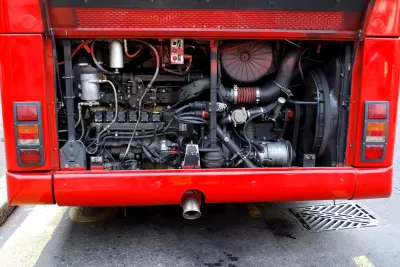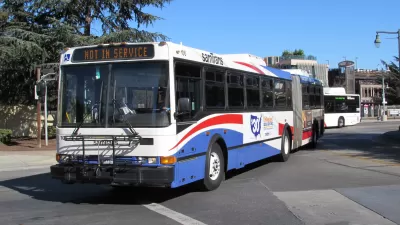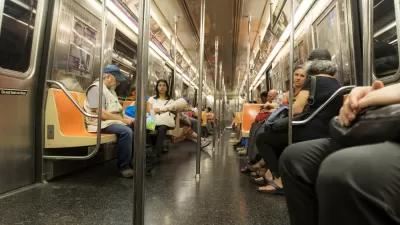Eighty-four percent of U.S. transit agencies surveyed said CDL complexity was a hiring obstacle, with the “under-the-hood” requirement being the most challenging.

According to an article from Mass Transit, 85 percent of public transit agencies across the country continue to face worker shortages in the wake of the pandemic, particularly bus operators. The American Public Transportation Agency has identified one bottleneck: the Commercial Driver’s License engine compartment component of the pre-trip vehicle skills testing requirement, known as the ‘‘under-the-hood’’ testing component. To help close the gap, APTA has requested the Federal Motor Carrier Safety Administration to grant a 5-year exemption from the requirement for public transit operators.
“According to APTA, its research shows that 84 percent of transit agencies cite CDL complexity as a hiring obstacle, with the under-the-hood requirement rated as the most challenging aspect of obtaining a license. The association says the requirement is particularly burdensome, as transit agencies transition to zero-emission buses, where traditional engine components are being replaced by electric powertrains,” the article reads.
There is precedent for similar exemptions. Back in 2022, the FMCSA granted a similar exemption to the school bus industry when they were struggling to recruit more, and younger, drivers. Additional reasoning behind the request is that bus operators are not required for vehicle maintenance, which falls to trained mechanics, and the industry’s transition to zero-emissions makes much of the testing obsolete.
FULL STORY: APTA requests five-year exemption from CDL ‘under the hood’ testing requirement for public transit operators

Alabama: Trump Terminates Settlements for Black Communities Harmed By Raw Sewage
Trump deemed the landmark civil rights agreement “illegal DEI and environmental justice policy.”

Planetizen Federal Action Tracker
A weekly monitor of how Trump’s orders and actions are impacting planners and planning in America.

Why Should We Subsidize Public Transportation?
Many public transit agencies face financial stress due to rising costs, declining fare revenue, and declining subsidies. Transit advocates must provide a strong business case for increasing public transit funding.

Understanding Road Diets
An explainer from Momentum highlights the advantages of reducing vehicle lanes in favor of more bike, transit, and pedestrian infrastructure.

New California Law Regulates Warehouse Pollution
A new law tightens building and emissions regulations for large distribution warehouses to mitigate air pollution and traffic in surrounding communities.

Phoenix Announces Opening Date for Light Rail Extension
The South Central extension will connect South Phoenix to downtown and other major hubs starting on June 7.
Urban Design for Planners 1: Software Tools
This six-course series explores essential urban design concepts using open source software and equips planners with the tools they need to participate fully in the urban design process.
Planning for Universal Design
Learn the tools for implementing Universal Design in planning regulations.
Caltrans
Smith Gee Studio
Institute for Housing and Urban Development Studies (IHS)
City of Grandview
Harvard GSD Executive Education
Toledo-Lucas County Plan Commissions
Salt Lake City
NYU Wagner Graduate School of Public Service





























